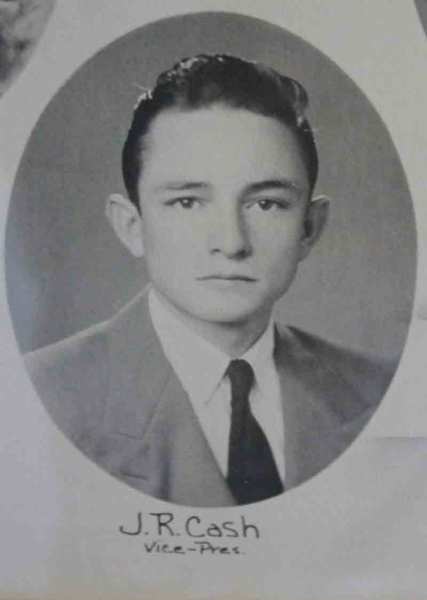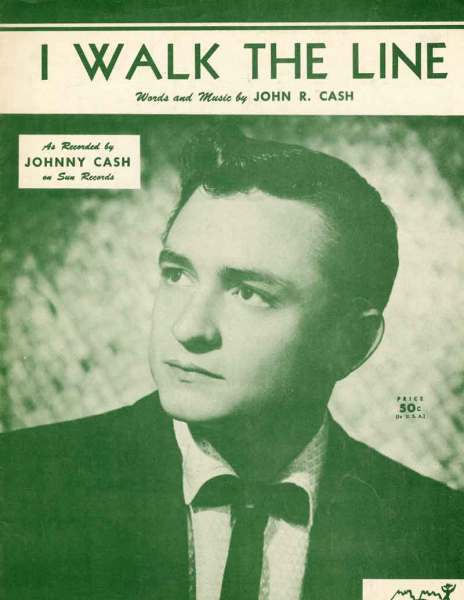Dyess was home, but Johnny Cash felt stifled by life in his small town. By the time he reached 18, he was ready for a change. In 1950, he graduated from Dyess High School. Cash worked briefly as a strawberry picker in Dyess and an assembly-line worker in Detroit before deciding the military was a better option. At the height of the Korean War, Cash volunteered for the Air Force, which stationed him in West Germany. Cash rose to the rank of sergeant and excelled as a code breaker. “I’d ended up in the military the same way most other Southern boys did,” Cash wrote in his 1997 autobiography, “for lack of a better way out of the cotton fields.”
In the Air Force, Cash began writing his first songs, including "Folsom Prison Blues." While in the military, Cash wrote dozens of letters to his first wife, Vivian Liberto, a native of San Antonio. Cash thought about settling in Dyess with his wife after returning home from the military.
[Dyess] isn’t much but it’s home. From the way mom talked they got a nice four room house. As a matter of fact, dad says it’s the nicest, newest house in town. But of course it still wouldn’t have to be too nice to be the best. So that’s where we’ll be together when I first get back angel face. Of course it won’t be home, but we can make it home I guess. Anywhere that you are will be heaven. I’ll be at home anyplace you are. You’re my home. You’re my very life darling.
Early Career
Soon after he returned from Germany, Cash moved with his wife to Memphis. In 1955, Cash broke into the recording industry on Sam Phillips’ Sun record label. Cash would score a string of hits at Sun, including such classic songs as “Walk the Line,” “Folsom Prison Blues” and “Cry, Cry, Cry.”
On 3 August 1955, Cash played his first show in Little Rock. Cash, who had only released two singles up until that time (“Folsom Prison Blues” had been released less than a week before) failed to receive any billing in an Arkansas Gazette advertisement for that night’s show. Elvis was billed below Webb Pierce, best-known for his 1955 hit, “In the Jailhouse Now.” Despite their billing, the musicians at the Little Rock show were not just “country stars.” Cash and others blended blues, gospel, country, and folk. They were instrumental in creating what became known as rock and roll.
Cash rose to stardom in the late 1950s. “It looks as if Elvis Has a Rival—from Arkansas,” music critic Ralph Gleason wrote in 1956. “Cash so far has continued to live calmly and resisted the impulse to buy Cadillacs by the gross,” Gleason continued. “Perhaps the reason for this is a simply one—fishing. It seems that every chance he gets Cash slips away from work and goes fishing. His press agent even claims he writes his best songs while angling for a catfish.”
By the late 1950s, Cash split his time between California and Tennessee. But in many ways, he never left Arkansas in his mind. In May 1959, he went on a well-publicized fishing trip with singer Johnny Horton in Kingsland. Horton’s career was cut short tragically when he was killed in a car accident in 1960. His death shook Cash. After Horton’s death, Cash’s drug addiction worsened and would not let up for seven years.


